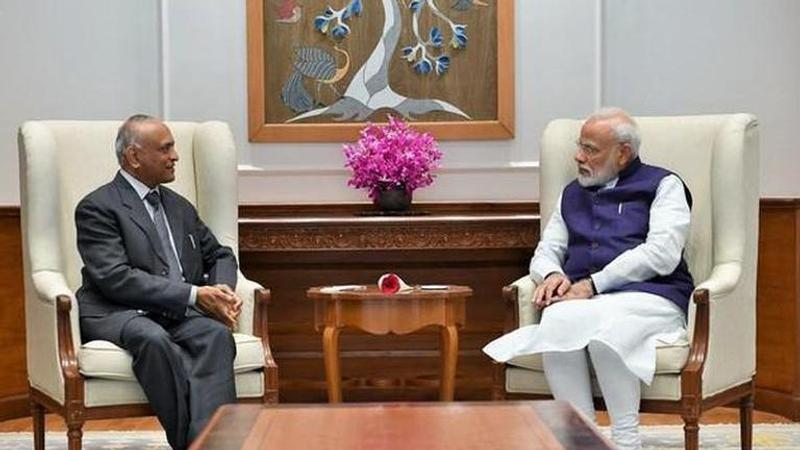Published 15:49 IST, November 6th 2019
Ladakh's Lieutenant-Governor RK Mathur Calls on PM Modi in Delhi
Ladakh's newly appointed Lieutenant-Governor RK Mathur met Prime Minister Narendra Modi in the National Capital on Wednesday after Ladakh received its UT status

Ladakh's newly appointed Lieutenant-Governor RK Mathur has called on Prime Minister Narendra Modi in Delhi on Wednesday. This is the Lieutenant-Governor's first meeting with PM Modi after he was sworn in as the Lieutenant Governor of the newly created Indian Union Territory of Ladakh. Jammu-Kashmir and Ladakh were bifurcated into two different Union Territories on October 31. RK Mathur had taken an oath as Lieutenant-Governor under the administration of Jammu-Kashmir High Court's Chief Justice Geeta Mittal, on October 31.
About RK Mathur
Mathur is a retired Indian Administrative Service (IAS) officer of Tripura cadre from 1977 batch. He retired as the Chief Information Commissioner of India (CIC) in November 2018. Apart from the Central Government, the IAS officer has served the Tripura governments as the Chief Secretary of Tripura, Principal Secretary of Finance, and Principal Secretary of Agriculture. RK Mathur was appointed as the Chief Secretary of Tripura in December 2003. In 2016, he was given the charge as the Chief Information Commissioner of India (CIC).
Parliament revoked Article 370 and 35A
Article 370 and 35A were revoked by the Central government. Article 370 gave special status to Jammu and Kashmir and proposed that the state be bifurcated into two Union Territories, Jammu and Kashmir, and Ladakh. The Jammu & Kashmir (Reorganisation) Bill, 2019, which removes Jammu and Kashmir's status of a state and converts it into two Union Territories with the legislature and also creates Ladakh region as a UT without legislature. It was passed in a division pressed by the opposition with 125 votes in favour and 61 against, and an NCP member abstained in the Rajya Sabha. It was then passed by a two-thirds majority in the Lok Sabha on the next day, making it law.
(With inputs from ANI)
Updated 20:13 IST, November 6th 2019




